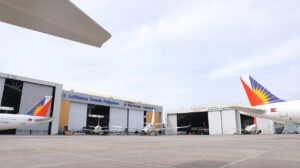GERMAN companies listed high energy costs, inadequate infrastructure, and supply chain disruptions as their top concerns that tempered their confidence in the Philippine market, the German-Philippine Chamber of Commerce and Industry (GPCCI) said.
Citing its World Business Outlook Survey, the GPCCI said in a statement on Tuesday that 54% of the respondents said they expect to expand their workforces in the Philippines, exceeding regional and worldwide averages.
Some 44% also said that they plan to increase investment in the Philippines, while 55% expressed positive sentiment towards the current business environment.
However, the GPCCI said that this optimism is being undermined by challenges in energy costs, infrastructure, and supply chains.
“The AHK World Business Outlook Survey demonstrates the Philippines’ ability to deliver good results, particularly in employment growth and investment intentions, compared to global counterparts,” GPCCI President Marie Antoniette Mariano said.
“However, while this optimism is encouraging, we must remain vigilant in addressing the structural challenges that could hinder sustained progress,” she added.
The GPCCI said that the Philippines showed higher sensitivity to rising energy prices and commodity costs compared to other ASEAN markets, while infrastructure bottlenecks were more pronounced.
“It is crucial to prioritize policies that enhance energy efficiency, modernize infrastructure, and build resilient supply chains to ensure long-term competitiveness and sustainable growth,” GPCCI Board Director and Policy and Advocacy Chairperson Marian Norbert Majer said.
Meanwhile, the GPCCI said that businesses in the Philippines view efforts to meet sustainability requirements as a competitive advantage.
The GPCCI said 43% of the businesses identified sustainability practices as a growth driver. This is slightly higher than the global average of 41%.
To leverage sustainability, the chamber cited the need for reforms to address long-standing issues.
“Sustainability is a defining factor for the future of business, and the survey underscores its importance as a driver of competitiveness in the Philippines,” GPCCI Executive Director Christopher Zimmer said.
Around 44% of the companies cited a shortage of skilled labor as a risk, while 40% identified economic policy. — Justine Irish D. Tabile
